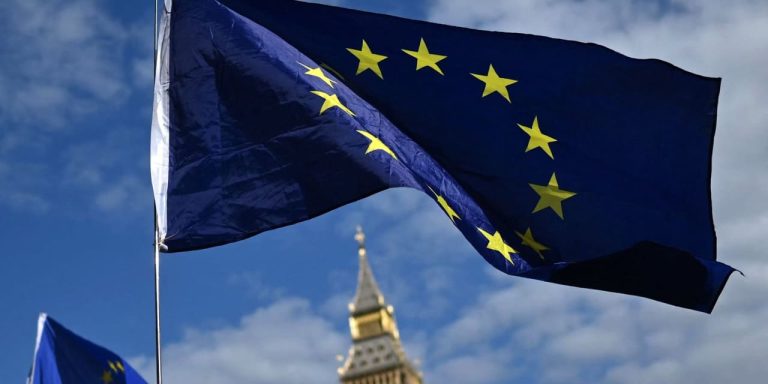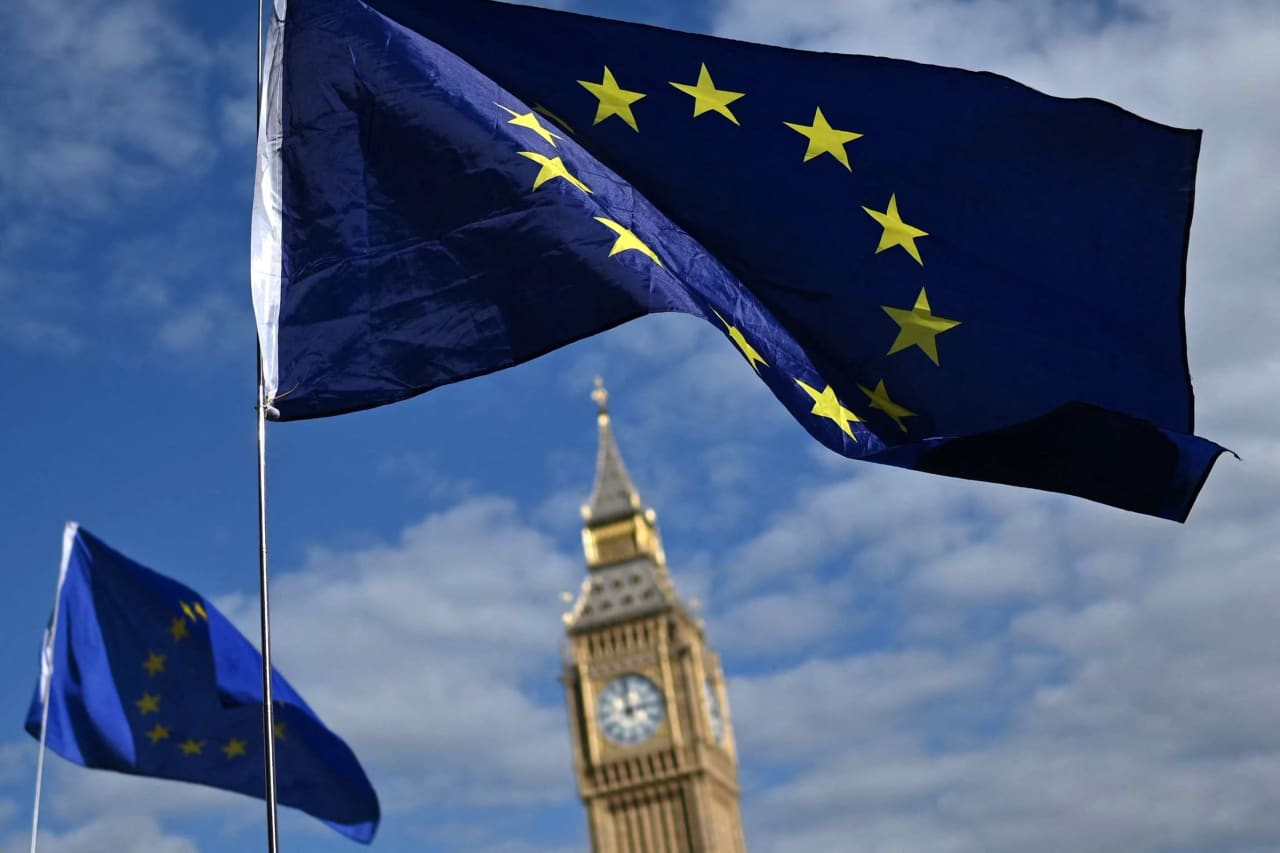The UK economy is now 5% worse off than it would have been if it had never left the EU due to a decline in trade and investment since the Brexit referendum in June 2016, according to a new study by Goldman Sachs.
This slowdown has seen the UK's GDP per capita stagnant since Covid-19, having increased just 4% since the 2016 referendum, compared with an 8% increase in the eurozone and a 15% increase in the US, a team at the Bank said. Goldman is led by Goldman Sachs. Chief European Economist Sven-Jari Steen.
Meanwhile, the UK has seen much higher inflation than rival advanced economies, with consumer prices in the country rising by 31% since 2016, versus rises of 27% in the US and 24% in the eurozone.
The Goldman Sachs study compared the post-Brexit UK economy with a hypothetical model of one that never left the EU, blaming this poor performance on falling trade, falling investment and labor market impacts on the decision to leave the EU.
The UK's trade volume – total imports and exports – is around 15% lower than comparable countries, due to higher trade barriers with the EU and the resulting shift in supply chains.
Britain's exports of goods to both the EU and the rest of the world have fallen sharply since Brexit, even as its exports of services, which account for 40% of the country's total exports, have remained roughly the same, the report said.
Investment in the UK has also stalled since Brexit, as a result of the uncertainty in the years immediately following the referendum coupled with the withdrawal of hard-hit businesses. Total investment is 5% lower than if Britain had never left the EU
Stehn and the team said the situation was exacerbated by a decline in EU immigration, which led to reduced flexibility in the UK labor market, despite a slight increase in overall immigration due to people moving from non-EU countries.
Before Brexit, most migration to the UK was from EU migrants moving for work. Now, a much larger proportion of people entering the UK are students, who have much less influence in boosting the country's workforce.
Flows between the UK and the EU have also reversed since Brexit, in a shift that has seen net migration from Europe fall from its peak of more than 300,000 per year in 2016 to net negative levels today.
Economists at Goldman Sachs said this lack of immigration has tightened the UK labor market, exacerbating inflation in the country's economy.
They added that the UK's post-Brexit push to increase flows of highly skilled workers and reduce flows of low-paid workers should help boost the country's productivity in the long term.
The UK could also see a slight uptick in investment, consistent with what has been seen in recent quarters, as Brexit uncertainty increasingly begins to resolve itself, even if lower trade volumes continue to weigh on investment more generally.
Reports add that new trade deals with countries outside the European Union could help mitigate some of the long-term costs of Brexit. However, any benefits are unlikely to outweigh reduced trade with the European bloc.


